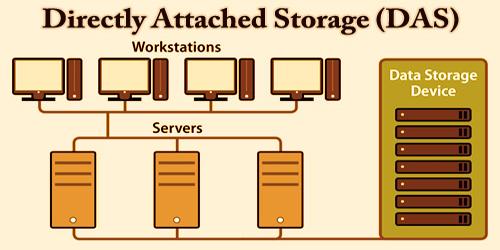From Security to Scalability: The Benefits of Network Storage Solutions

Data has become the lifeblood of modern businesses. With growing demands to store, access, and manage data efficiently, businesses are turning to network storage solutions as an essential part of their IT infrastructure. Whether you’re optimizing for security, scalability, or accessibility, network-attached storage (NAS) solutions are increasingly becoming the go-to choice for enterprises and small-to-medium businesses alike.
This blog will explore the core benefits of network storage solutions, focusing on how they enhance security, scalability, and operational efficiency. We’ll also cover specific use cases of NAS storage solutions and why they are key to meeting today’s IT challenges.
What Are Network Storage Solutions?
Network storage solutions are systems designed to store and manage data centrally, allowing users and applications to access the data securely over a network. Unlike direct-attached storage (DAS), where storage resources are tethered to a single device, network storage solutions are highly flexible and can serve multiple users or devices across an organization.
The two most common forms are network-attached storage (NAS) and storage area networks (SANs). Both provide centralized access to files and data, but they address different needs in terms of speed, architecture, and cost. NAS systems are accessible via standard network protocols, while SAN typically requires dedicated high-speed connections.
The Core Benefits of Network Storage Solutions
1. Enhanced Data Security
Data breaches, ransomware, and accidental data loss are constant threats to businesses today. Network storage solutions are built to mitigate these risks through advanced data security measures, such as:
- Access Control: NAS systems include user roles and permissions, ensuring that sensitive files are accessible only to authorized personnel.
- Data Encryption: Most modern NAS systems offer end-to-end encryption, protecting data both at rest and in transit.
- Backup and Recovery: Built-in redundancy features such as RAID (Redundant Array of Independent Disks) configurations ensure that data remains available even if a single drive fails.
For example, businesses using NAS systems like StoneFly backup repository can set up snapshots to take real-time backups, ensuring data can be restored quickly in case of an issue.
2. Scalability to Meet Growing Demands
Businesses are generating more data than ever before, and traditional storage solutions often fail to scale efficiently. NAS storage solutions are highly scalable, making them ideal for businesses that expect their data needs to grow over time.
- Add-on Storage: NAS systems allow administrators to add drives to existing storage pools without disrupting operations.
- Clustered Storage: Enterprise NAS systems like those from Dell EMC allow multiple devices to act as a single storage cluster, significantly increasing capacity.
- Cloud Integration: Many modern NAS platforms offer hybrid setups, where businesses can expand storage using cloud services such as AWS, Microsoft Azure, or Google Cloud Storage.
This scalability makes NAS storage solutions particularly appealing for growing startups or e-commerce businesses anticipating an increase in customer demand.
3. Improved Collaboration and Accessibility
Gone are the days where files lived only on individual devices. Network storage solutions make it easier for teams to collaborate by providing centralized and organized data access for multiple users.
- File Sharing: Teams can work simultaneously on shared folders without worrying about duplicates or version control issues.
- Remote Access: With built-in support for remote file sharing and mobile apps, NAS storage ensures employees can access critical files from anywhere.
- Workflow Automation: Integration with productivity tools like Microsoft Office 365 or Slack helps streamline repeatable tasks, further improving collaboration.
For example, creative agencies using NAS systems can enable their teams to work on data-intensive projects such as video editing without running into latency issues.
4. Optimized Performance and Speed
Traditional storage solutions can become bottlenecks in performance, especially as organizations handle increasingly complex workflows. Network storage solutions, designed with throughput and reliability in mind, address these issues effectively.
- High-Speed Connections: Using technologies like 10Gb Ethernet, NAS devices can handle concurrent access from multiple users without compromising speed.
- SSD Caching: Many NAS systems offer SSD cache options, boosting the performance of frequently accessed data.
- Optimized for Applications: NAS platforms sometimes come pre-configured for specialized workloads, such as handling large databases or virtual machines.
This performance boost is why industries like healthcare, where quick data access is literally life or death, rely heavily on NAS storage solutions.
5. Cost-Effectiveness and ROI
Compared to building private data centers for storage, NAS storage solutions offer far better value for money.
- Lower Initial Costs: Most NAS devices are available at an accessible price point, while still offering enterprise-grade features.
- Energy Efficiency: NAS solutions are generally more energy-efficient than running standalone servers for storage.
- Minimized Downtime: With robust features such as automated failover and continuous syncing, businesses can avoid costly downtime.
Use Cases for Network Storage Solutions
1. Backup and Disaster Recovery
NAS devices are critical in creating efficient disaster recovery plans. They can regularly back up data from multiple devices, ensuring quick restoration during outages or breaches.
2. Data Archiving
For businesses that process vast amounts of data, NAS offers a reliable platform for archiving older data while keeping it easily accessible.
3. Content Creation and Media Management
Creative professionals such as video editors and graphic designers benefit from the high-speed read and write capabilities of NAS systems, allowing seamless access to large media files.
4. Virtualization and Cloud Integration
Many NAS solutions support virtual machines and hybrid cloud deployments, making them an integral part of modern IT infrastructures.
Choosing the Right Network Storage Solution for Your Business
With multiple options available in the market, selecting the right NAS storage solution can feel daunting. Here are a few considerations to keep in mind:
- Storage Capacity: Understand your current and future storage requirements.
- Performance Needs: Evaluate whether you need features like 10Gb Ethernet or SSD caching.
- Security Features: Look for built-in encryption, multi-factor authentication, and access control options.
- Budget: Compare features against your budget to find the best value.
Empowering Your Business with Modern Storage Solutions
Network storage solutions, particularly NAS storage solutions, are not just about storing data—they’re about unlocking possibilities. These systems enhance collaboration, protect your critical information, and scale as your data needs grow.
For forward-thinking businesses, investing in network storage solutions is no longer an option—it’s a necessity to stay competitive in a data-driven world.
If your organization is ready to streamline its storage capabilities, consider exploring the latest NAS systems today. The right solution could redefine how you interact with your data, driving efficiency and innovation in every aspect of your business.



